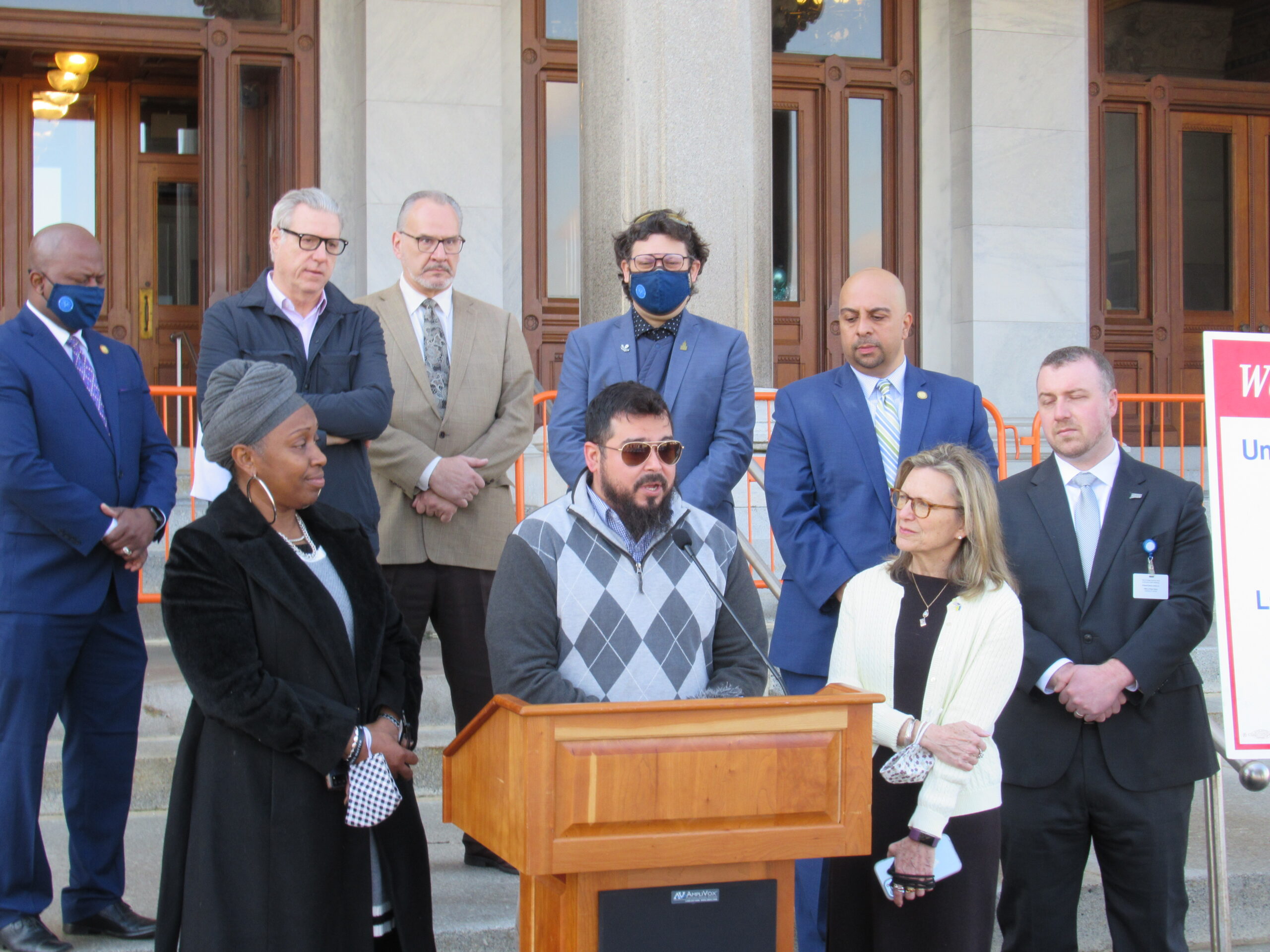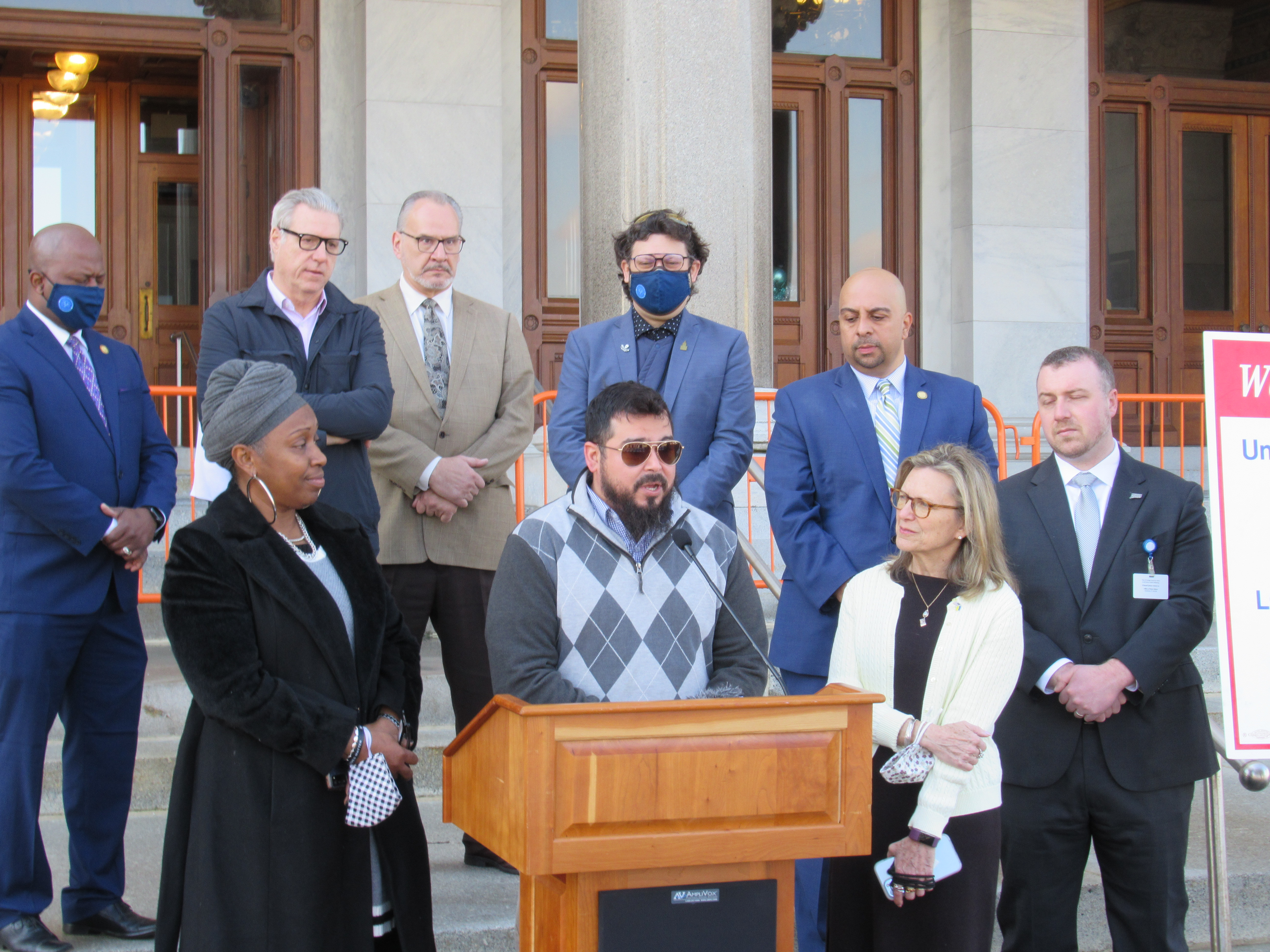

Union officials on Wednesday announced they will be launching workforce development programs for the state’s “budding” cannabis industry, with the hopes of spurring new job opportunities and growing their membership ranks.
Representatives from UFCW Local 919 and Local 371 — two Connecticut coalitions that are part of the United Food and Commercial Workers International Union — and other cannabis-industry stakeholders met outside the Capitol in Hartford to discuss efforts to increase employment and training opportunities in cannabis-related businesses.
The Connecticut AFL-CIO, one of the most powerful unions in Connecticut and nationwide, has endorsed the UFCW as the Connecticut Cannabis Union, essentially giving it a stamp of approval as a credible group to join, according to UFCW Local 919 President Mark Espinosa.
As part of its push to gain traction in the state’s cannabis industry, the UFCW is launching a joint apprenticeship training program that will train workers from “seed to sale,” Espinosa said, something vital to the industry’s long-term success.
Union officials said they plan to launch other programs in the state that are used nationally. For example, a business fundamentals program will give participants an introduction to the industry and what to expect when working for a cannabis company.
“These programs will also help ensure that cannabis jobs do mean living wages, pathways to advancement and equity, especially for the marginalized communities,” Espinosa said.
Labor peace agreements
The union’s presence in Connecticut is gaining some early traction. Luis Vega, CEO of upstart cannabis company Nautilus Botanicals, said he recently signed a labor peace agreement with UFCW to unionize his workforce and leverage the training and development programs. Vega, a well-known hemp farmer who runs North Haven-based Wepa! Farms, is pursuing a cannabis cultivation license to become a marijuana grower in the state. If he earns a license, Vega said Nautilus Botanicals would create about 150 jobs in the Bridgeport area.
“I’m from a union household, my father was a steward and he worked his way up,” Vega said. “Nautilus Botanicals is going to do the right thing for the communities we work in and we live in.”
A labor peace agreement provision was included in the recreational marijuana law passed last year, and it gives unions a chance to make inroads into the industry.
The agreements, sometimes referred to as neutrality agreements, lay out how companies and labor organizations can behave during union organizing. To get a retail cannabis license in Connecticut, a company will have to enter into a labor peace agreement with a union.
They require employers to remain neutral during a unionization process, while preventing unions from picketing or holding work stoppages.
Some legal experts have said such agreements are labor friendly.
UFCW Local 371 President Ronald Petronella said labor peace agreements help “level the playing field” for employees and their employers.
UFCW said it has been representing cannabis workers for more than a decade. UFCW International is the largest private sector union in the United States that represents 1.3 million workers across all 50 states, Canada and Puerto Rico.
“The UFCW is not new to this,” Espinosa said. “Our hope and our goal is to help those workers achieve some of the standards and benefits that usually only a collective bargaining agreement can produce.”

